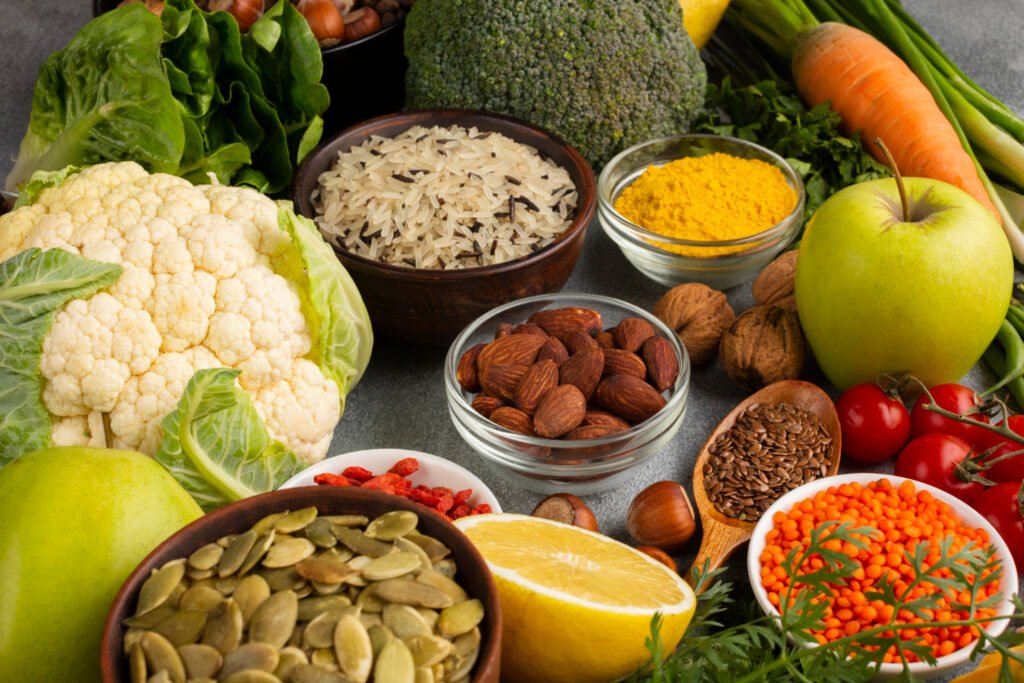
In this article
overview
Chronic inflammation is increasingly recognized as a major contributor to a variety of health issues, including heart disease, diabetes, arthritis, and even cancer. While inflammation is a natural immune response that helps the body heal and fight off harmful invaders, when it becomes chronic, it can lead to long-term damage. Fortunately, the food you eat can play a crucial role in managing and reducing inflammation. This guide explores the best anti-inflammatory foods you can incorporate into your diet to support overall health and well-being.
Understanding Inflammation
Inflammation serves as the body’s defense mechanism, essential for healing and protection. However, when the inflammatory process goes unchecked, it can contribute to chronic diseases. Chronic inflammation occurs when the immune system is persistently activated, leading to tissue damage and contributing to conditions such as cardiovascular disease, autoimmune disorders, and metabolic syndrome.
Diet plays a pivotal role in either exacerbating or alleviating inflammation. An anti-inflammatory diet, rich in specific foods, can help prevent and reduce chronic inflammation, promoting better health outcomes.
Top Anti-Inflammatory Foods to Include in Your Diet
- Berries: Nutrient-Packed Powerhouses
Berries like strawberries, blueberries, raspberries, and blackberries are loaded with antioxidants, particularly anthocyanins, which have powerful anti-inflammatory effects. These fruits help reduce the risk of chronic diseases by lowering markers of inflammation in the body. Their high vitamin C content also supports immune function, further aiding in inflammation control - Fatty Fish: Omega-3 Rich Superfood
Fatty fish such as salmon, mackerel, sardines, and trout are among the best sources of omega-3 fatty acids, which have been shown to reduce inflammation. Omega-3s combat inflammation by reducing the production of molecules and substances linked to inflammation, such as eicosanoids and cytokines. Regular consumption of fatty fish has been associated with a lower risk of chronic conditions like heart disease and arthritis - Leafy Greens: The Nutrient-Dense Greens
Leafy green vegetables like spinach, kale, and collard greens are rich in vitamins, minerals, and antioxidants that fight inflammation. They are particularly high in vitamin K, which has been associated with a lower risk of inflammatory markers in the blood. These greens are also excellent sources of fiber, which supports gut health and further reduces inflammation. - Nuts: Small But Mighty Anti-Inflammatory Agents
Nuts, including almonds, walnuts, and hazelnuts, are rich in healthy fats, fiber, and magnesium, all of which contribute to reduced inflammation. The anti-inflammatory properties of nuts have been linked to a lower risk of heart disease and type 2 diabetes. Including a handful of nuts in your daily diet can provide significant health benefits. - Olive Oil: The Heart-Healthy Fat
Extra virgin olive oil is a staple of the Mediterranean diet, renowned for its anti-inflammatory properties. It contains oleocanthal, a compound with effects similar to ibuprofen in reducing inflammation. Incorporating olive oil into your diet can help reduce the risk of heart disease, cancer, and other inflammatory conditions. It’s also a versatile oil that can be used in cooking, dressings, and dips. - Turmeric: The Golden Spice of Life
Turmeric is a bright yellow spice commonly used in curries and other dishes. Its active compound, curcumin, has potent anti-inflammatory effects. Studies have shown that curcumin can inhibit the activity of inflammatory molecules and pathways, making turmeric a powerful tool in the fight against inflammation. To enhance its absorption, pair turmeric with black pepper or a source of fat
- Tomatoes: Juicy and Anti-Inflammatory
Tomatoes are an excellent source of lycopene, an antioxidant that has been shown to reduce inflammation, particularly in the lungs. Cooking tomatoes, such as in tomato sauce, enhances the bioavailability of lycopene, making it easier for the body to absorb. Tomatoes also contain vitamins C and E, which further contribute to their anti-inflammatory effects. - Garlic and Onions: The Pungent Protectors
Garlic and onions contain compounds that exhibit strong anti-inflammatory properties. Allicin, found in garlic, and quercetin, found in onions, help lower inflammation and provide protective benefits against diseases like cancer and heart disease. These foods also have immune-boosting properties, making them valuable additions to your diet. - Green Tea: The Antioxidant-Rich Beverage
Green tea is celebrated for its anti-inflammatory benefits, thanks to its high content of polyphenols, particularly epigallocatechin gallate (EGCG). Regular consumption of green tea has been associated with reduced inflammation and a lower risk of chronic diseases. It’s a simple, soothing beverage that can be enjoyed daily as part of a healthy lifestyle. - Whole Grains: The Fiber-Filled Fighters
Whole grains like oats, brown rice, and quinoa are rich in fiber, which has been shown to reduce inflammation by improving gut health. Fiber helps feed beneficial gut bacteria, which in turn produce short-chain fatty acids that have anti-inflammatory effects. Whole grains also provide essential nutrients like B vitamins, which support overall health.
Tips for an Anti-Inflammatory Diet
- Incorporate More Plant-Based Foods: Focus on a diet rich in fruits, vegetables, whole grains, and legumes. These foods are naturally high in antioxidants and phytonutrients that help combat inflammation.
- Limit Processed Foods: Avoid foods high in refined sugars, trans fats, and artificial additives, as these can promote inflammation.
- Stay Hydrated: Drinking plenty of water helps flush out toxins and supports overall health, including reducing inflammation.
- Exercise Regularly: Physical activity helps reduce inflammation and can improve your overall health.
Incorporating anti-inflammatory foods into your diet is a natural and effective way to manage inflammation and protect your long-term health. By focusing on whole, nutrient-dense foods, you can reduce your risk of chronic diseases and improve your overall well-being. Start making small changes today, and experience the benefits of an anti-inflammatory lifestyle
A Quick Review
This blog post on “Anti-Inflammatory Foods to Eat” provides a comprehensive guide to incorporating anti-inflammatory foods into your diet. It highlights the benefits of foods like berries, fatty fish, leafy greens, and more, offering practical tips for reducing chronic inflammation naturally. The article is well-structured, easy to read, and enriched with valuable insights that can help readers make healthier dietary choices to combat inflammation and improve overall well-being.
Frequently Asked Questions
What are anti-inflammatory foods?
Anti-inflammatory foods are those that help reduce inflammation in the body. These include berries, fatty fish, leafy greens, nuts, olive oil, turmeric, tomatoes, garlic, onions, green tea, and whole grains.
How do anti-inflammatory foods work?
Anti-inflammatory foods contain nutrients, antioxidants, and healthy fats that help reduce inflammation by neutralizing free radicals, supporting immune function, and improving gut health.
Can an anti-inflammatory diet prevent chronic diseases?
Yes, an anti-inflammatory diet can help prevent chronic diseases like heart disease, diabetes, and arthritis by reducing chronic inflammation, a key factor in these conditions.
How often should I eat anti-inflammatory foods?
Incorporating anti-inflammatory foods into your daily diet is ideal. Regular consumption helps maintain low inflammation levels, promoting overall health.
Are there foods I should avoid to reduce inflammation?
Yes, avoid processed foods, refined sugars, trans fats, and artificial additives, as these can increase inflammation in the body.
Can I follow an anti-inflammatory diet if I’m vegan?
Absolutely! Many anti-inflammatory foods, such as fruits, vegetables, whole grains, nuts, and seeds, are plant-based, making it easy to follow a vegan anti-inflammatory diet.











